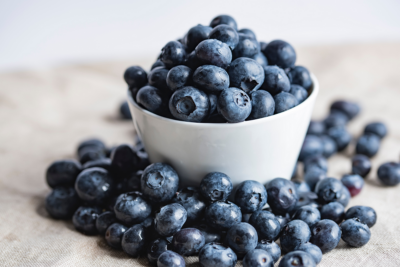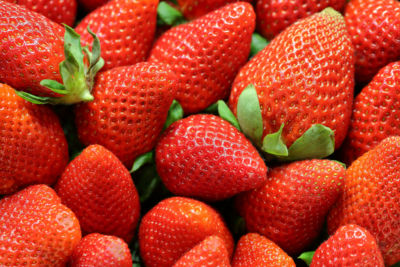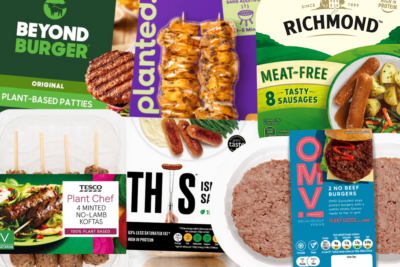Type 2 diabetes is the most common form of diabetes worldwide, accounting for over 90 per cent of cases. Thankfully, it can be prevented, halted and in many cases, reversed. Studies consistently show that being vegan can manage this life-limiting and life-threatening condition.

Diabetes is one of the fastest-growing global conditions, and places a massive burden on individuals and health care services. Since 1996 the number of people in the UK with diabetes has nearly tripled, from 1.4 million to over 4 million.
More than 21 million people have type 2 diabetes in the US, while globally diabetes was the direct cause of 1.5 million deaths in 2019.1
Worryingly, type 2 diabetes is also now becoming increasingly common in younger adults and even in children.
“The figures are alarming and confirm diabetes is one of the biggest health challenges facing the UK today” – Diabetes UK
Diabetes is incredibly serious. It can lead to vascular complications causing heart disease, foot ulcers, limb amputations, erectile dysfunction, kidney failure, and eyesight problems, including blindness.
On average a diabetic’s life expectancy is 10 years less than that of an average non-diabetic. All of this makes diabetes a leading cause of death and disability right across the world.
How can being vegan help with type 2 diabetes?
Research consistently shows that eating a whole food plant-based diet can prevent and manage this terrible condition.
A large prospective study measuring rates of diabetes in vegans, the Adventist Health Study-2, found vegans to have a 60 per cent less chance of developing the disease than non-vegetarians after two years of follow-up.2
The lower rates of diabetes in vegetarians, and vegans especially, were commented on by the study authors:
“Fruits and vegetables may contribute to a decreased incidence of type 2 diabetes through their low energy density, low glycaemic load, and high fibre and macronutrient content. Other features of the vegetarian diet are whole grains and legumes. These foods have been shown to improve glycaemic control, slow the rate of carbohydrate absorption and the risk of diabetes.”
A cross-sectional study3 from the Adventist Health Study-2 showed vegans to have a 68 per cent lower rate of diabetes than non-vegetarians.
A number of clinical trials have now shown that a vegan, or mostly vegan, diet can lower body weight, reduce blood sugar, and improve other parameters for type 2 diabetes.
According to Diabetes UK:
“Plant-based foods, particularly fruit and vegetables, nuts, pulses and seeds have been shown to help in the treatment of many chronic diseases and are often associated with lower rates of Type 2 diabetes, less hypertension, lower cholesterol levels and reduced cancer rates.”
A 2016 review of three large trials concluded that “plant-based diets, especially when rich in high-quality plant foods, are associated with substantially lower risk of developing type 2 diabetes”. 4
What is really important to note for health is that “while consumption of a plant-based diet high in less healthy plant foods was associated with a 16% increased diabetes risk.” So, we need to remember to eat a whole food plant-based diet for health.
A 2018 review of the available research concluded: “No matter the type of vegetarian diet followed, there are therapeutic effects. However, there is evidence that a vegan diet has the most benefits for reducing the fasting plasma glucose levels of persons with diabetes and other complications, such as CVD risk.”5
How Can I Reduce My Risk?
Being vegan is one important way to prevent type 2 diabetes, but being a junk-food vegan won’t help. The 2016 research found that “consumption of a plant-based diet high in less healthy plant foods was associated with a 16% increased diabetes risk.”
The foods that protect us from diabetes – as well as a host of other serious conditions – are plants. Try to include these foods in your diet as much as possible:
- Fruits
- Vegetables
- Legumes
- Whole grains
- Salads
- Nuts
- Herbs
- Spices
Studies also show that maintaining a healthy weight and taking regular exercise are important in reducing the risk of developing type 2 diabetes.
References
1. World Health Organization. “Diabetes.” World Health Organization, 2023, www.who.int/health-topics/diabetes#tab=tab_1. Accessed 5 Dec. 2023.
2. Tonstad, S., et al. “Vegetarian Diets and Incidence of Diabetes in the Adventist Health Study-2.” Nutrition, Metabolism and Cardiovascular Diseases, vol. 23, no. 4, Apr. 2013, pp. 292–299, https://doi.org/10.1016/j.numecd.2011.07.004.
3. Tonstad, S., et al. “Type of Vegetarian Diet, Body Weight, and Prevalence of Type 2 Diabetes.” Diabetes Care, vol. 32, no. 5, 7 Apr. 2009, pp. 791–796, www.ncbi.nlm.nih.gov/pmc/articles/PMC2671114/, https://doi.org/10.2337/dc08-1886. Accessed 5 Dec. 2023.
4. Satija, Ambika, et al. “Plant-Based Dietary Patterns and Incidence of Type 2 Diabetes in US Men and Women: Results from Three Prospective Cohort Studies.” PLOS Medicine, vol. 13, no. 6, 14 June 2016, p. e1002039, www.ncbi.nlm.nih.gov/pmc/articles/PMC4907448/, https://doi.org/10.1371/journal.pmed.1002039. Accessed 5 Dec. 2023.
5. Olfert, Melissa D., and Rachel A. Wattick. “Vegetarian Diets and the Risk of Diabetes.” Current Diabetes Reports, vol. 18, no. 11, 18 Sept. 2018, www.ncbi.nlm.nih.gov/pmc/articles/PMC6153574/, https://doi.org/10.1007/s11892-018-1070-9. Accessed 5 Dec. 2023.
This page was reviewed by Claire Lynch, RD and nutritionist Rohini Bajekal from Plant-Based Health Professionals in November 2023. For more information about type 2 diabetes, see this fact sheet.




















